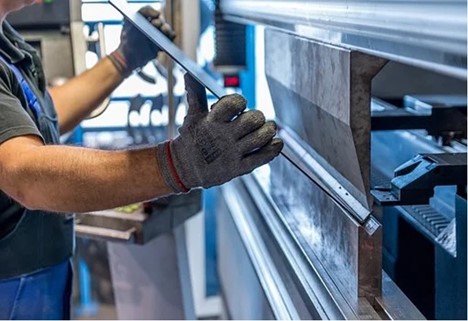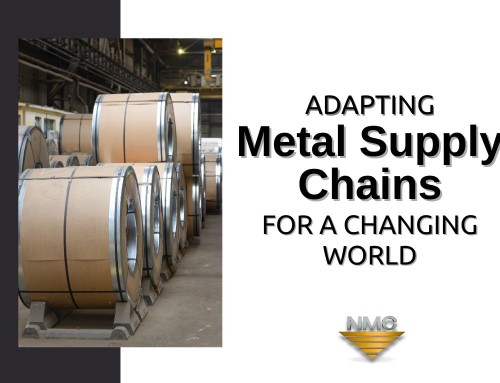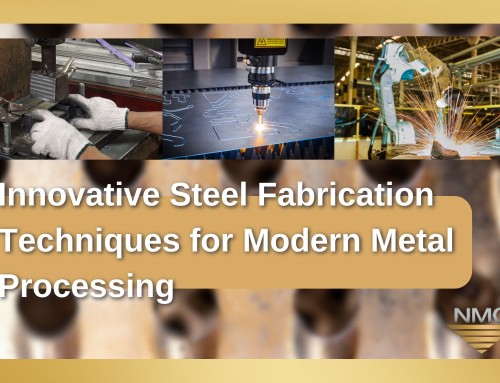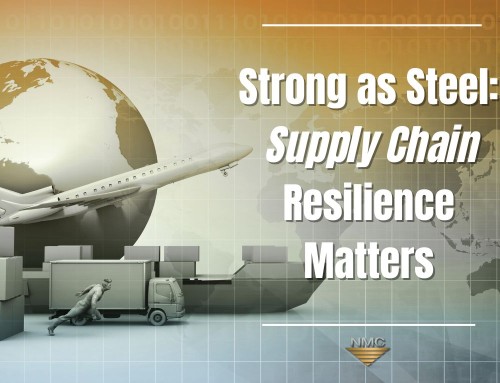
In an ancient Greek myth, Prometheus steals fire from the gods so that humans may escape their wretched situation on Earth. A modern rendition of this myth may have Prometheus bringing us steel rather than fire.

It is steel, strong and versatile, which releases modern humans from the constraints of nature. It is a stalwart in everything from medical equipment to structural elements, to specialty parts in aerospace, automotive, shipbuilding, military, and infrastructure industries. Today, our steel researchers, metallurgists, technicians, and engineers put on the garb of Prometheus as they continue to perfect different grades and specialty steel.
What are some of the aspects that go into steel processing?
Steel Grades Make Steel Processing Easier
In the modern world, there is a specialist for every job. It’s no different with steel. The “grade” of steel is a descriptor that identifies both the physical properties of the steel as well as its composition, among other descriptors. Currently, there are more than 3,500 grades of steel, each tailored towards a specific task. Of these, the grand majority were developed just in the last 25 years.
Thanks to this variety, steel processors can offer their clients the perfect “specialist” for the job.
Steel Processing: Earth-Friendly

No modern industry can claim to be for the benefit of mankind without being sustainable. For this reason, steel sustainability has made huge leaps in the last decades towards social responsibility.
Fortunately, as a material, steel is very compatible with sustainable goals. Steel is 100% recyclable. It is also very long-lasting and improves the performance of transportation vehicles, which makes for greener rides. Recently with the increased prominence of electric arc furnaces, more and more steel recycling has given new life to old steel. All this is done without reductions in quality or performance.
Creating Better Steel for Steel Processing
The creation of new grades of steel involves transformation of the chemical composition of steel alloys as well as using different physical processes to transform steel.
Steel can be categorized into four basic groups based on the chemical compositions:
- Carbon steel
- Alloy steel
- Stainless steel
- Tool steel
Check out this page to learn more about each of those categories.
Steel Processing: A Huge Enterprise
2020 saw the production of 1.88 billion metric tonnes (Mt) globally, which was actually 0.3% above the pre-pandemic 2019 production numbers. The worldwide COVID-19 pandemic caused many industries to grind to a halt, which – in turn, decreased the demand for steel. However, in 2022 demand promises to bounce back. The Worldsteel Association predicts that “steel demand will grow by 4.5% in 2021 and reach 1,855.4 Mt after 0.1% growth in 2020. In 2022, steel demand will see a further increase of 2.2% to 1,896.4 Mt. The current forecast assumes that, with the progress of vaccinations across the world, the spread of variants of the COVID virus will be less damaging and disruptive than seen in previous waves.”

Steel Processing of Advanced High Strength Steels
A thematic characteristic of steel and steel processing is that it’s a forward-looking industry that’s constantly in motion. One of the most exciting innovations in steel has to do with stronger, lighter steel grades. Using stronger steel means thinner parts and less weight in automobiles, aerospace, and the maritime industries. Many manufacturers also look for benefits in formability.
Enter advanced high strength steels. These steels are defined as “all martensitic and multiphase steels having a minimum specified tensile strength of at least 440 MPa.” The high strength associated with AHSS grades makes slitting, leveling, and straightening more challenging, and requires processing companies to invest in upgraded gears, journals, and frames of their equipment. The Red Bud slitting line used by National Material Company is ideal for such applications
About us
— National Material Company understands that to be part of the steel processing industry means to be a company in forward motion. The fast-paced world of steel requires expansion, innovation, and starting ahead of the latest trends in steel manufacturing. With this mindset, companies can meet the clients where they’re at: with one eye on the present and another on the future. Established in 1964 and now identified as a leader in steel processing and supply-chain management, NMC is proud to service the metals industry through efficiency, innovation, and performance.
Visit our website or call us at 847-806-7200.





